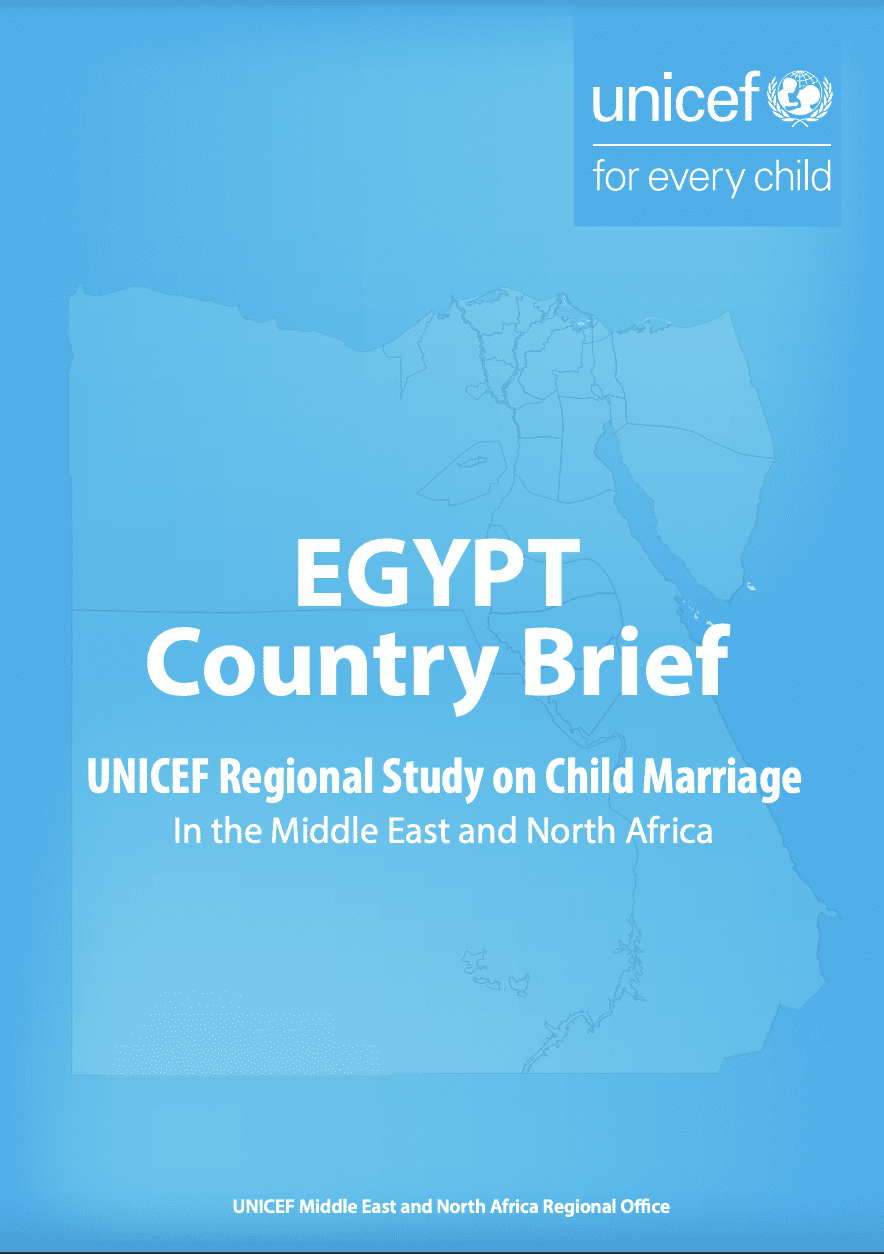
EGYPT Country Brief: UNICEF Regional Study on Child Marriage In the Middle East and North Africa
Egypt Regional Study on Child Marriage
Key Recommendations
Girls’ Voice & Agency
- Strengthen girls’ voice within the design and implementation of child marriage prevention programmes and policies.
- Make public spaces safer for girls.
- Continue to provide financial incentives for sending girls to school.
Household and Community Attitudes and Behaviours
- Leverage social networks to change collective beliefs and practices related to early marriage and FGM/C.
- Engage receptive religious leaders.
Service Delivery
- Increase reporting mechanisms for child marriage.
- Increase investment in secondary education.
Legal Context
- Develop strategies to ensure implementation of the National Strategic Plan for Prevention of Early Marriage.
- Strengthen legal enforcement of existing child marriage laws.
- Capitalize on related government priorities, such as addressing overpopulation and FGM/C.
- Consider the unintended consequences of the formalization of ‘seasonal marriages’ through Ministerial Regulation No. 9200.
Evidence Generation
- Strengthen the coordination of research initiatives.
- Build evidence on girls’ perceptions of child marriage and how education impacts marriage timing for girls.
- Use findings to inform the National Strategic Plan for Prevention of Early Marriage.
Read more here.
